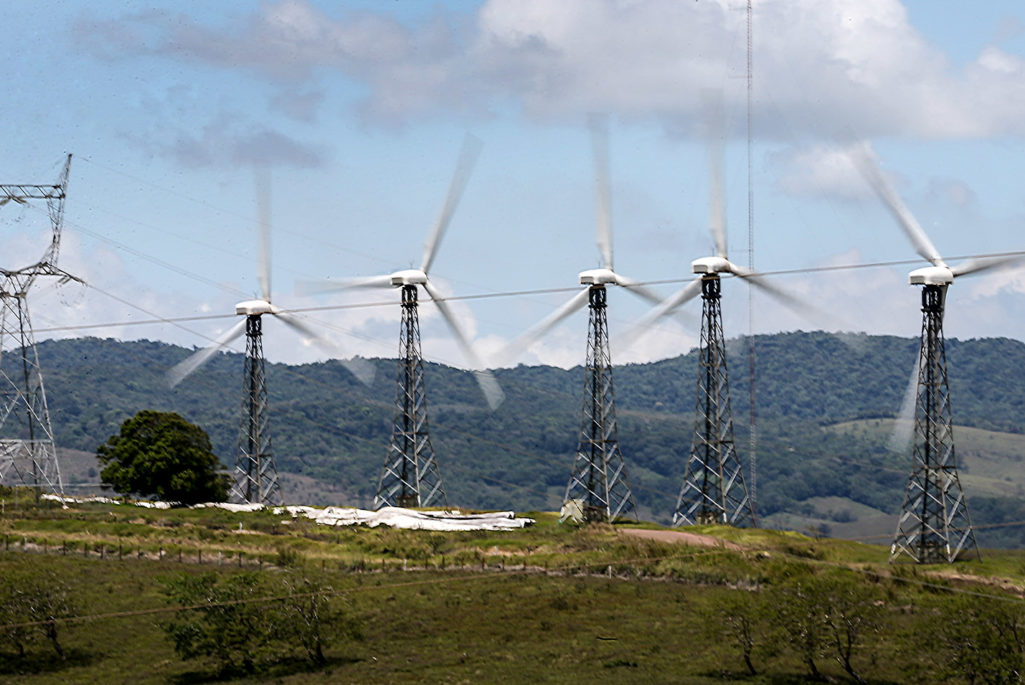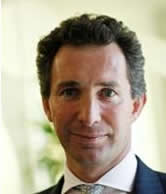Progress Toward Balanced, Sustainable Energy World Remains Slow

Wind turbines run by the Costa Rican Electricity Institute are seen along a ridge line as the power company has managed to produce all of the electricity for the nation from renewable energy sources for more than 80 days straight on March 26, 2015 in Guanacaste, Costa Rica. The milestone was reached with the use of hydroelectric power plants and a combination of wind, solar, and geothermal energy.
Photo: Joe Raedle/Getty Images
Energy sustainability is not only an opportunity to transform societies and grow economies, but it is also a necessity—a prerequisite to meet growing energy demand in many parts of the world and to reduce the global carbon footprint. In order to build a strong basis for prosperity and competitiveness, individual countries must balance the three core dimensions of what Oliver Wyman and the World Energy Council have defined as the energy trilemma: affordability and access, energy security and environmental sustainability.
The annual Energy Trilemma Index ranks 130 countries on their performance in meeting the energy trilemma and assesses how well countries are balancing the three dimensions.
As highlighted in the 2015 Index released today, the transition towards balanced and sustainable energy systems is slowly taking place. Over the last five years, positive developments have been recorded in access to energy, share of renewables in the electricity generation mix and rate of energy-efficiency improvements. Global energy intensity has decreased by 4.2 percent and CO2 emissions intensity has fallen by 4.5 percent in that time, while the global electrification rate has risen to 85 percent with an additional 222 million people gaining access to electricity from 2010-2012.
Still, many countries face obstacles to achieving a successful balance across the energy dimensions. This year, only two countries, Switzerland and Sweden, managed to obtain an AAA balance score across all three dimensions. The United Kingdom’s score was amended to AAB, as its energy equity performance suffered in comparison to other leading countries.
Several countries, including the UK, Japan and Germany, are identified on the 2015 Watch List as being likely to experience a significant change in Index performance in the near future. These positive or negative changes can be driven by deep transitions in their energy systems—be they of a regulatory nature, concerning the energy supply mix or related to infrastructure changes to improve the resilience of their energy systems. In 2015, South Africa and the U.S. were added to the negative watch list, while the Philippines and Serbia are now on watch for overall positive trends in the coming years.
The energy challenges faced by each country are unique and complex, as evidenced by the variability in performance across the trilemma dimensions and contextual factors. Yet the transnational nature of energy markets and environmental issues necessitates a perspective that extends past the country level. Energy leaders have emphasized the need to adopt regionally coordinated approaches to energy resources, infrastructure and regulation.
Accordingly, the Index report includes regional profiles designed to characterize the challenges and opportunities faced by various regions in relation to the energy trilemma. The growth in global investment in renewable energy in Asia is noted alongside the rapid growth of greenhouse gas emissions there, while Latin America faces increasing challenges driven by changing weather patterns and concerns related to the energy-water-food nexus.
In the lead-up to the United Nations Climate Change Conference (COP 21) in Paris on November 30 through December 11, energy sector leaders have spoken about the need for a clear international dialogue and a robust, sustainable policy framework to ensure research and investment is targeted at delivering sustainable energy systems. Progress across the dimensions of the energy trilemma remains slow, and can only be sped up by creating such frameworks that give certainty to investors.








